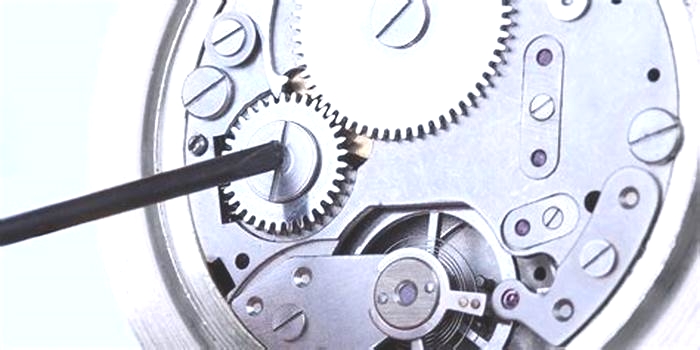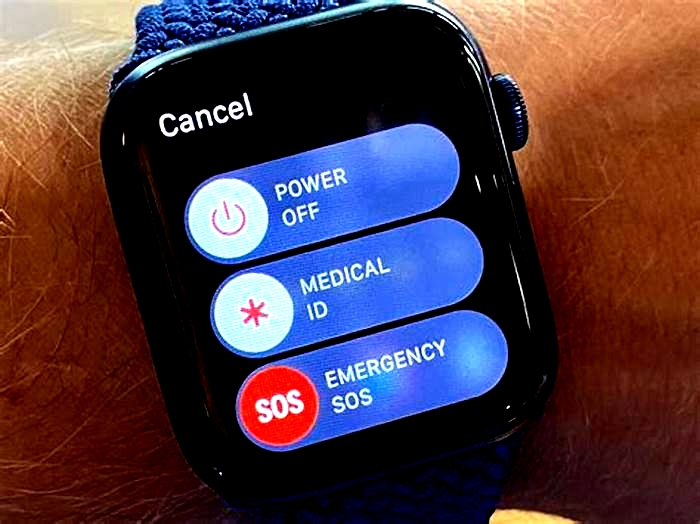Why I stopped wearing a smartwatch
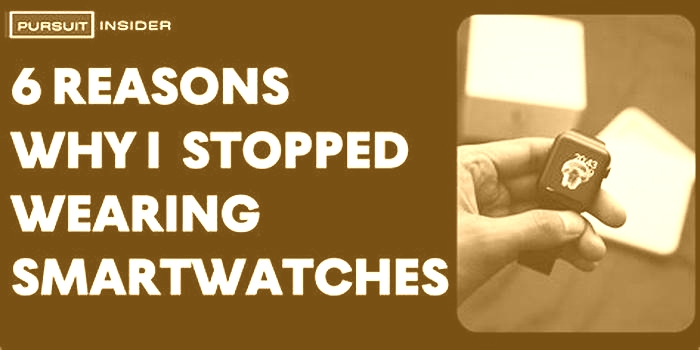
Why I stopped wearing my smartwatch and why I havent looked back
I fell in love with smartwatches when I got my hands on the first-generation Moto 360, a beautifully designed, gorgeous smartwatch running Googles first OS for smartwatches. Since then, Ive tried on and reviewed more than a dozen fitness wearables, including the Apple Watch SE and Amazfit GTR and GTS series. And with time, Ive grown to absolutely dislike the product segment.
I gave up on smartwatches a few months ago, and heres why Im not going back any time soon (unless its for review purposes).
Data, data, and more data
I used to wear my smartwatch to sleep. And my daily routine after waking up was to check how many hours of deep sleep I got. The habit sucked me first into the smartwatch and then into the app. Id barely be awake, and instantly Id be bombarded with data light sleep, deep sleep, REM, and whatnot.
And once that was done, I became accustomed to checking out more fitness data like the number of steps I walked the day before and how many calories I took in. In the first 20 minutes of the day, I was already sucked into a screen.
As if thats not enough, every time I lifted my wrist to look at the time, I was again face-to-face with information overload.Lift your wrist to check the time? Heres how many miles youve walked today. Ended the day without walking much? Oh, here is a feel-bad notification about how you missed your goal. Working on closing those activity rings? Heres a badge for you.
Wearing a smartwatch is a vomit of data in your face. And most of the time, you dont know what to do with that data.
Smartwatches might be helping some people stay fit or get in shape, but no amount of closing my rings or sharing fitness data with friends motivates me to exercise more. In fact, I became more irritated every time I saw one of my friends close their rings while I was sitting there gulping a big bite of pizza.
I dont want to be always available to a gadget
Smartwatches were developed to be available to you when you need them and not vice versa. I noticed that the opposite was happening to me.
In a meeting and get a notification? Here, let me swipe right to dismiss it. Out with friends and get a ping on your wrist? Its your boss, and he wants that assignment done tomorrow. Having dinner with family and get a spam call? Easy. Tap the red icon to end it.
There are two patterns here. Number one, not every notification is time-sensitive. In fact, Ill go on to say that most of the notifications that you receive on your smartwatch arent time-sensitive. Notifications can wait. You mostly look at them on your wrist and swipe them away. Number two, these notifications are getting in the way of living your life in the present moment.
When Im having dinner with my mom and dad, I dont want my wrist to buzz. Let me have my meal in peace. Let me hang out with my friends without the need to constantly be connected to the virtual world after working hours. Let me be attentive in the meeting without being taken away from the conversation every few minutes.
It might sound cliche, but Id very much like people to be present in what theyre doing in the moment without being distracted by a little gadget buzzing on their wrist. For me, one out of 10 notifications might be time-sensitive and need my attention. In a bid to not miss that one notification, I was subjecting myself to nine useless notifications that distracted me from what I was doing in real life.
You can always wear a smartwatch and turn off the notifications. But did you really buy a smartwatch to do that? A fitness band would have sufficed.
Living a stress-free life
With such inconveniences, it was natural for me to get frustrated and give up on the form factor. I switched to the good old G-Shocks and Tissots of the world. I no longer have to wait a split second when I raise my wrist to see the time. When I want to check the date, Im only looking at the information I need, and not the data the watch wants to feed me.
Now, my watch works for me and thats how its supposed to be. In the data-hungry world where we want to track every calorie intake and every step we take, sometimes its wise to take a step back and look at your choices. Are you always available for your smartwatch, or is it always available for you? If its the former, you know its time to give yourself a break from all the metrics and take out your dumb watch just as I did.
There is something liberating about not being a slave to the data. Im no longer in a rush to close the rings. I dont need to track every calorie I take in. I dont care about the amount of deep sleep Im getting. But at the same time, Im living a healthier life because the stress of data on my wrist is no longer competing to take up space in my mind. Im living a happier life, and I have the lack of a smartwatch on my wrist to thank.
Editors' Recommendations
Why I Stopped Wearing a Smartwatch: 5 Reasons
In todays technologically advanced world, smartwatches have become increasingly popular among individuals seeking convenience and connectivity on their wrists. However, after wearing a smartwatch for some time, I made the personal decision to stop using it.
Here, I will share my reasons for Why I Stopped Wearing a Smartwatch and explore the factors that influenced my choice. So, keep reading it.
Why I Stopped Wearing a Smartwatch
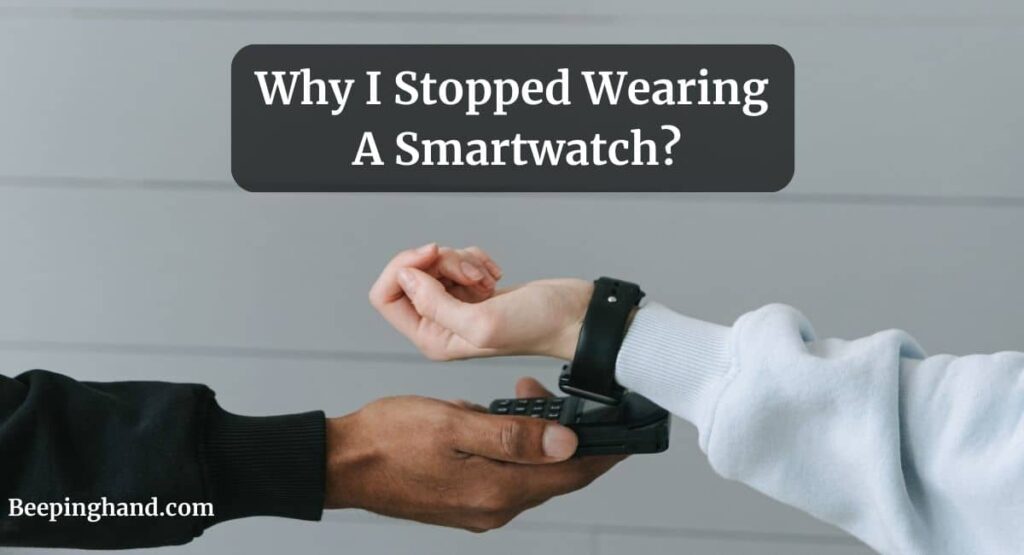
Smartwatches offer a wide range of features and functionalities, including fitness tracking, notifications, and the ability to make calls right from your wrist. They have become popular accessories for tech-savvy individuals and those seeking a more connected lifestyle. However, despite the allure, I found myself gradually becoming dissatisfied with the smartwatch experience and ultimately decided to stop wearing one.
Here are 5 reasons given below
Constant Notifications and Distractions
One of the primary reasons for discontinuing my use of a smartwatch was the constant influx of notifications and the associated distractions they caused. While notifications can be helpful and keep us informed, having them continuously buzzing on my wrist became overwhelming.
It made it challenging to focus on tasks or be fully present in the moment. I realized that I needed to reclaim my attention and reduce the constant interruptions.
Dependence on Technology
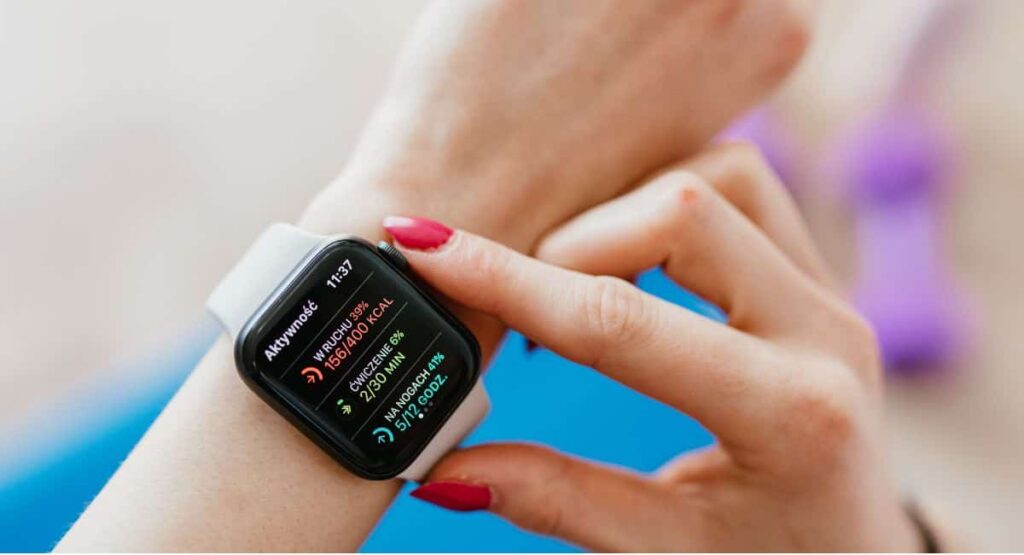
Wearing a smartwatch reinforced my dependence on technology. I felt compelled to constantly check my wrist for updates, messages, and notifications, even in situations where it wasnt necessary or appropriate.
This constant reliance on technology detracted from my ability to be fully present and engage with the world around me. I wanted to regain a sense of independence and break free from the perpetual need for connectivity.
Battery Life and Charging Hassles
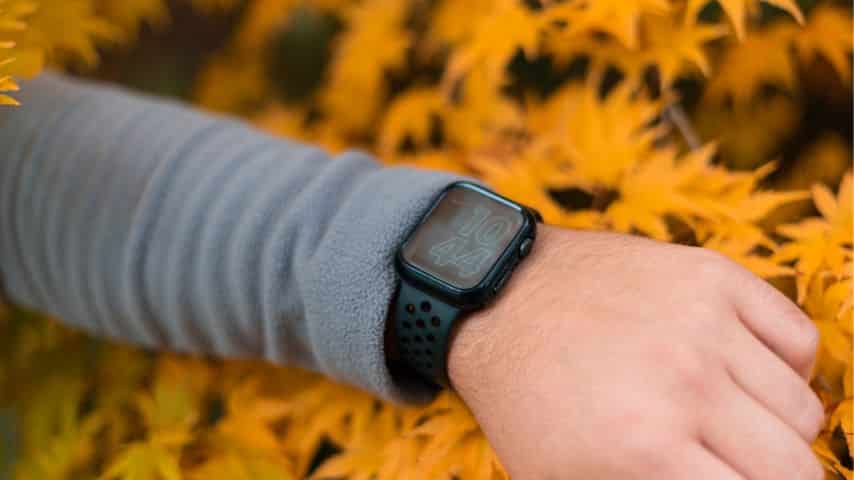
Smartwatches typically have limited battery life, especially when equipped with numerous features. Having to charge the device every day or every few days became inconvenient and time-consuming. It felt like an additional task on my already busy schedule.
Moreover, if I forgot to charge the watch, it would be rendered useless, defeating the purpose of wearing it in the first place. The constant need for charging and the anxiety of battery life became burdensome.
Limited Design Options
While smartwatches have evolved in terms of functionality, the design options have been somewhat limited compared to traditional watches. Many smartwatches tend to have a similar tech-centric appearance, which may not suit everyones style or preference.
I missed the variety and elegance offered by traditional watches, which allowed for personal expression and complemented different outfits or occasions. I longed for a more diverse range of design choices.
Privacy and Data Concerns
Another factor that contributed to my decision to stop wearing a smartwatch was the growing concern over privacy and data security. Smartwatches often collect personal data, including health and fitness information, location data, and even biometric data. While companies assure users that their data is secure, there is always a lingering worry about potential breaches or misuse of personal information.
This unease surrounding privacy and data security played a role in my choice to distance myself from a device that constantly collected and transmitted personal data.
Also Read: Is it safe to wear Apple watch while sleeping
Negative Effects of Smartwatch?
Here are some negative effects of using a smartwatch
- Radiation Exposure Smartwatches emit a low level of radiation due to their wireless connectivity. Prolonged and close proximity exposure to this radiation may raise concerns for some individuals.
- Skin Irritation Some people may experience skin irritation or allergies from wearing a smartwatch, particularly if they have sensitive skin or are allergic to certain materials used in the watchband or casing.
- Sedentary Behavior One of the drawbacks of relying heavily on smartwatches for tracking fitness and health metrics is that they can promote sedentary behavior. Users may become too focused on achieving daily step goals without considering other forms of physical activity.
- Battery Life and Charging Smartwatches require regular charging, and some users may find it inconvenient to charge their devices frequently, especially if they are used to traditional watches with long battery life.
Wrapping Up
This article is all about Why I Stopped Wearing a Smartwatch. While smartwatches undoubtedly offer convenience and connectivity, they are not without their drawbacks. For me, the constant notifications, dependence on technology, battery life, and charging concerns, limited design options, and privacy and data concerns outweighed the benefits.
If you still have any questions then feel free to ask in the comment section. You can also read more about Smartwatch
FAQs Why I Stopped Wearing a Smartwatch
Are all smartwatches the same in terms of notifications?
No, the notification settings and behavior can vary between different smartwatches. Some may offer more customization options to manage notifications effectively.
Can smartwatches help improve productivity?
Smartwatches can provide productivity-enhancing features such as reminders, calendar integration, and email notifications. However, the potential for distractions should be considered.
Do smartwatches track personal data all the time?
Smartwatches track data based on the features and settings enabled by the user. They may collect health-related data, location information, and other user-specific details.
Are there alternative options to smartwatches?
Yes, traditional watches and minimalist wearable devices are popular alternatives for individuals seeking a simpler and less technology-focused approach.
Can smartwatches be used solely for fitness tracking?
Yes, many smartwatches excel in fitness tracking capabilities, offering features such as heart rate monitoring, step counting, and workout tracking. They can be used primarily for fitness purposes without extensive reliance on other smart functionalities.
Is it safe to wear a smartwatch all the time?
Yes, it is generally safe to wear a smartwatch all the time. However, its important to ensure a comfortable fit, follow proper charging and cleaning guidelines, and be mindful of any skin sensitivities or allergies.
8 Reasons Why I Stopped Wearing a Smartwatch
Smartwatches have gained popularity as accessories in todays high-tech society. These little gadgets do more than display the time; they also track your health, keep you linked to the internet, and even facilitate email management.
Smartwatches are great companions throughout your daily life. They keep a record of your daily health activities. Track your heart rate, measure your blood pressure, count your steps, keep your calorie count and much more.
However, multiple barriers could make you lose interest in wearing a smartwatch. In this article, well go into my own experience and examine the many factors contributing to why I stopped wearing a smartwatch.
Why I Stopped Wearing a Smartwatch Overview
The technology of today is naturally appealing. In this industry, innovation continuously stretches the boundaries of what is practical, helpful, and fashionable.
During the digital revolution, smartwatches have become a prominent symbol of the tech-savvy individual by captivating the public by seamlessly combining use and aesthetics. At first, the promises offered by these smart devices drew me in.
I was eager to purchase a technology to tell the time, monitor my health, and connect to the internet seamlessly. Lets examine the intricate reasons behind my decision to give up using my wristwatch and switch to a more straightforward, attentive analog watch.
Also Read >>Why Garmin Watches Are So Expensive?
Why I Began Wearing a Smartwatch
The two key factors that drew me to smartwatches are as follows:
Initial Attraction
It was incredibly wonderful to have a tiny computer on my wrist. Without picking up my phone, I could check my messages, return calls, and manage my schedule. It was challenging to ignore the excitement of owning such a helpful device.
Health and Fitness Tracking
I joined the smartwatch movement largely due to its ability to measure my health and fitness. It inspired me to keep moving, make fitness resolutions, and monitor my development. It turned to achieving better health into an enjoyable experience.
6 Reasons Why I Stopped Wearing Smartwatches
Here are the top five reasons I gave up wearing a smartwatch and switched to wearing an analog watch:
1. Health Concerns
I stopped wearing a smartwatch primarily because I was worried about the possible health consequences. Smartwatches emit low levels of electromagnetic radiation, as do smartphones and other wireless devices.
Long-term exposure to this radiation can raise concerns even if there isnt any conclusive proof of harm. I started worrying about the long-term effects of this radiation and how it would affect my health as I continued to wear my smartwatch daily.
2. Too Many Notifications
The ease of having notifications on my wrist quickly turned into an irritation. I often needed to catch up, respond to messages, and monitor social media while losing concentration. I was frequently interrupted by the smartwatch.
3. Distraction Factor
My smartwatch gradually began to interfere with my everyday activities. I needed help to focus during meetings, chats, or even just when I wanted to unwind. My productivity was suffering from the constant buzzing and warnings.
4. Realizing I Was Too Dependent on Tech
I recognized I was overly reliant on technology at that point. Even briefly, I could not step away from the digital world. My ties to the outside world were weaker than my ties to technology.
5. Battery Life Troubles
I had a lot of issues, including battery life. My smartwatch required frequent charging, which made enjoying its functions less important than fretting about the battery. The search for the smartwatch and phone chargers was a significant challenge.
6. Focus and Productivity
Despite being well-meaning, the constant notifications made me less focused and productive. My smartwatch was causing more harm than good. Every time I tried to concentrate, the notifications kept me from doing so.
7. Concerns about Data and Security
Data and privacy are among the most important topics, particularly in the current digital era. Smartwatches frequently gather various personal data, such as communication logs, location data, and health information.
Security and privacy issues are brought up by this data, even if it might be quite helpful for tracking fitness or maintaining connections. When utilizing a digital smartwatch, there can be serious hazards.
It may be associated with data breaches, unauthorized access, or improper treatment of personal information. These privacy concerns are removed by the very nature of analog timepieces, which do not gather, transmit, or store personal data.
8. Cost Considerations
Purchasing a smartwatch might be costly. Apart from the original purchase, there are expenses linked to the upkeep and updating of the gadget. I could have used these funds for other projects that were more important to me as a person when I took stock of my priorities and spending.
Back to Basics
The reasons mentioned above are the main factors that led me to stop wearing a smartwatch. I found that I was attracted to old analog watches. They stood for simplicity, a respite from modern cacophony, and an emphasis on what was important in life.
Analog Watches Vs. Digital Watches
The decision between a digital smartwatch and an analog watch is representative of a larger societal shift in how we view technology.
In this section, well examine the complex distinctions between these two systems of telling time and discover why I ultimately found myself attracted to the simplicity of an analog watch.
1. Aesthetic Appeal:
The aesthetics of analog and digital watches are among their most obvious distinctions. With their conventional displays and hands, analog watches have a classic, enduring charm.
Comparatively, digital smartwatches are technological marvels with touchscreens and interchangeable displays. They can look beautiful, but frequently, they look more like futuristic gadgets.
2. Simplicity vs. Complexity:
By design, analog timepieces are straightforward. They dont have any extraneous features that would detract from their primary function of telling the time. They only convey the passage of time in an unbroken, clear manner.
On the other hand, digital smartwatches are, as the name suggests, digital. They function as tiny computers you wear on your wrist, sending you constant notifications and information. This may cause overburdening and continuous distraction.
3. Connection to Tradition:
There is a sense of heritage and history associated with analog watches. Since watches like these have represented style and timeliness for ages, wearing an analog watch gives the wearer a sense of reconnection with a timeless tradition.
Digital smartwatches lack this rich historical context despite having cutting-edge technology. For individuals who value the weight of history in their accessories, this difference in tradition may be a convincing factor.
4. Mindful vs. Connected Living:
The simplicity of analog watches allows us to concentrate on the present moment without being constantly interrupted by alarms and notifications. Digital smartwatches can increase connectivity but reduce awareness and productivity.
Also Read >>How to Charge Michael Kors Smartwatch Without Charger?
Frequently Asked Questions (FAQs)
Why watch enthusiasts hate smartwatches?
Because smartwatches frequently lack the artistry, history, and design of conventional mechanical timepieces, watch lovers may find them objectionable. For individuals who value the history and complex mechanisms of conventional timepieces, smartwatches may turn them off since they prioritize technology more than horological beauty.
Is it bad to wear a smartwatch all the time?
While wearing a smartwatch all the time may not be harmful per se, it might cause problems such as persistent connectivity, privacy issues, and possible health risks from continuous exposure to electromagnetic radiation. Its best to balance use with rest periods.
Do people really need a smartwatch?
People dont necessarily need a smartwatch, but they can find it beneficial for features like fitness tracking, notifications, and convenience. The necessity of a smartwatch largely depends on individual lifestyle and preferences.
What are the negative effects of smartwatches?
Negative effects of smartwatches can include privacy concerns due to data collection, distractions from constant notifications, potential health concerns related to electromagnetic radiation, and the risk of becoming overly dependent on technology.
What are the disadvantages of smart wearables?
Disadvantages of smart wearables include limited battery life, the potential for data breaches or privacy violations, aesthetic preferences that favor traditional watches, and the risk of becoming too reliant on technology, possibly diminishing real-world social interactions and personal time.
Conclusion: Embracing a Simpler Lifestyle
I decided to stop wearing a smartwatch to take charge of my life. Its not a matter of rejecting technology but instead of finding a balance that suits me. Accepting a more straightforward way of life gave me calm and presence.
To genuinely connect with the actual world, you occasionally need to unplug from the digital one. In this article, Ive provided a more extensive and systematic analysis of why I stopped using smartwatches.
I wish this post had been more enjoyable for you to read. Id appreciate hearing your thoughts in the comments regarding your experience using smartwatches. Also, let me know which ones you prefer between analog and digital smartwatches.

